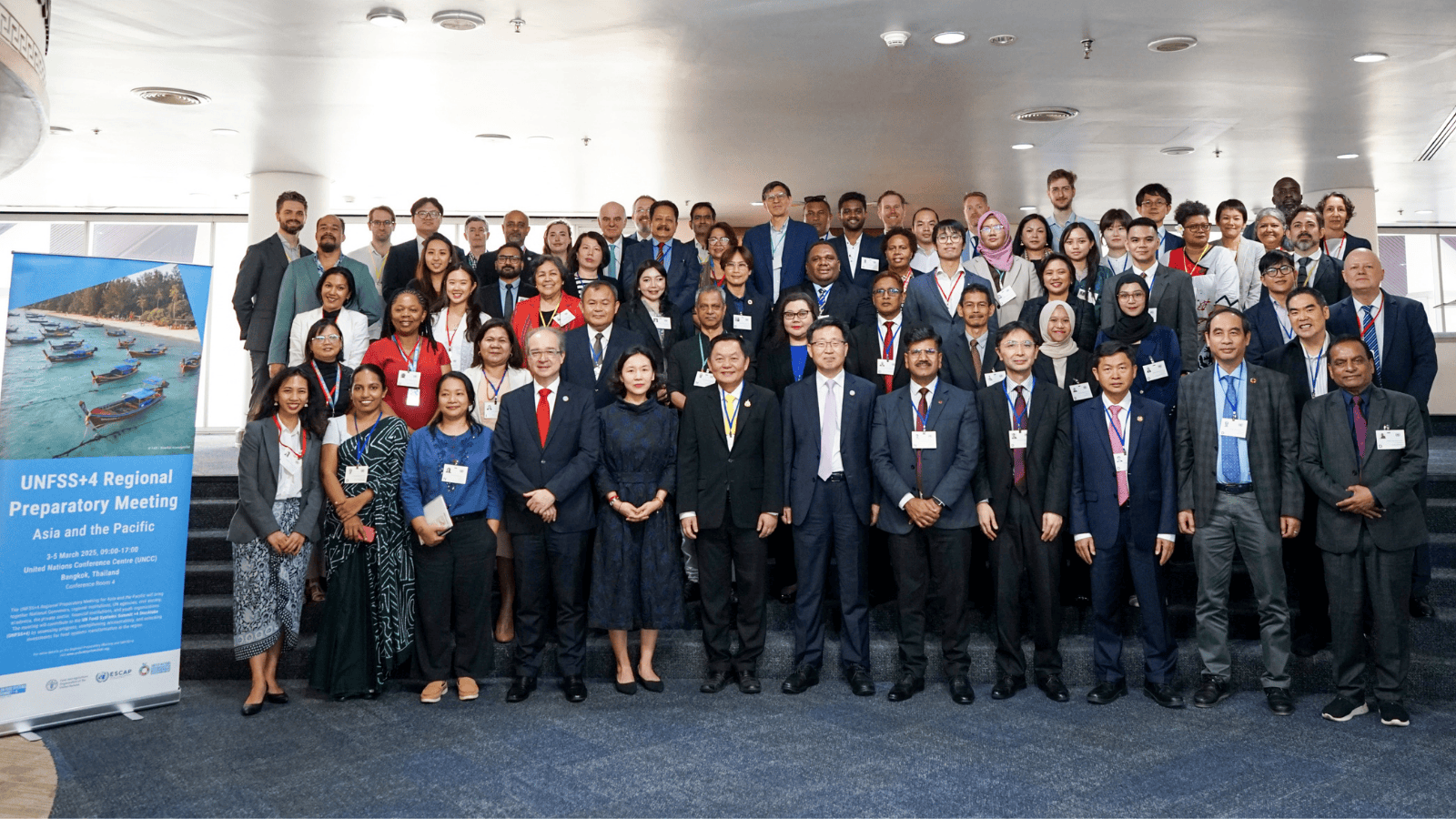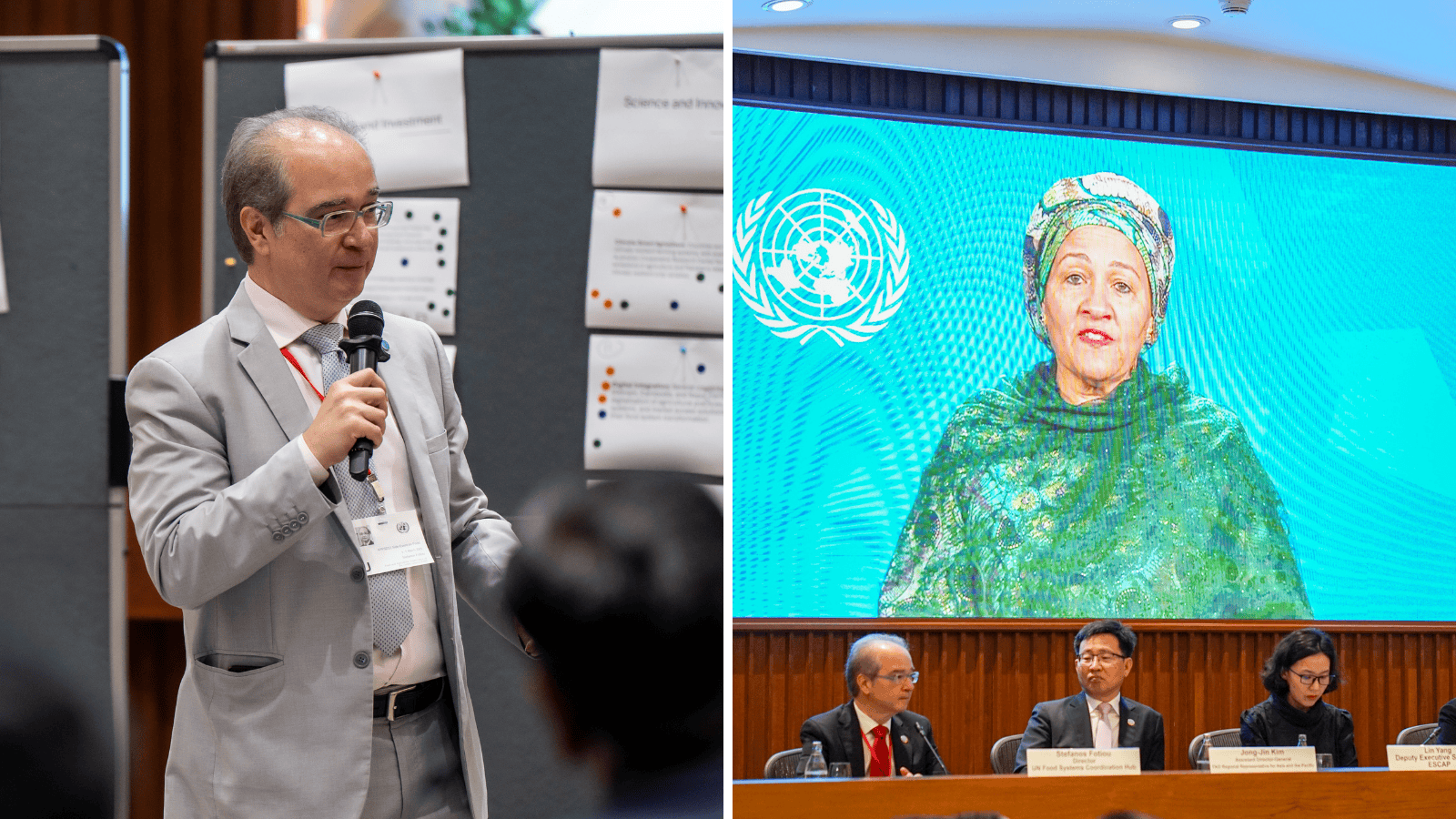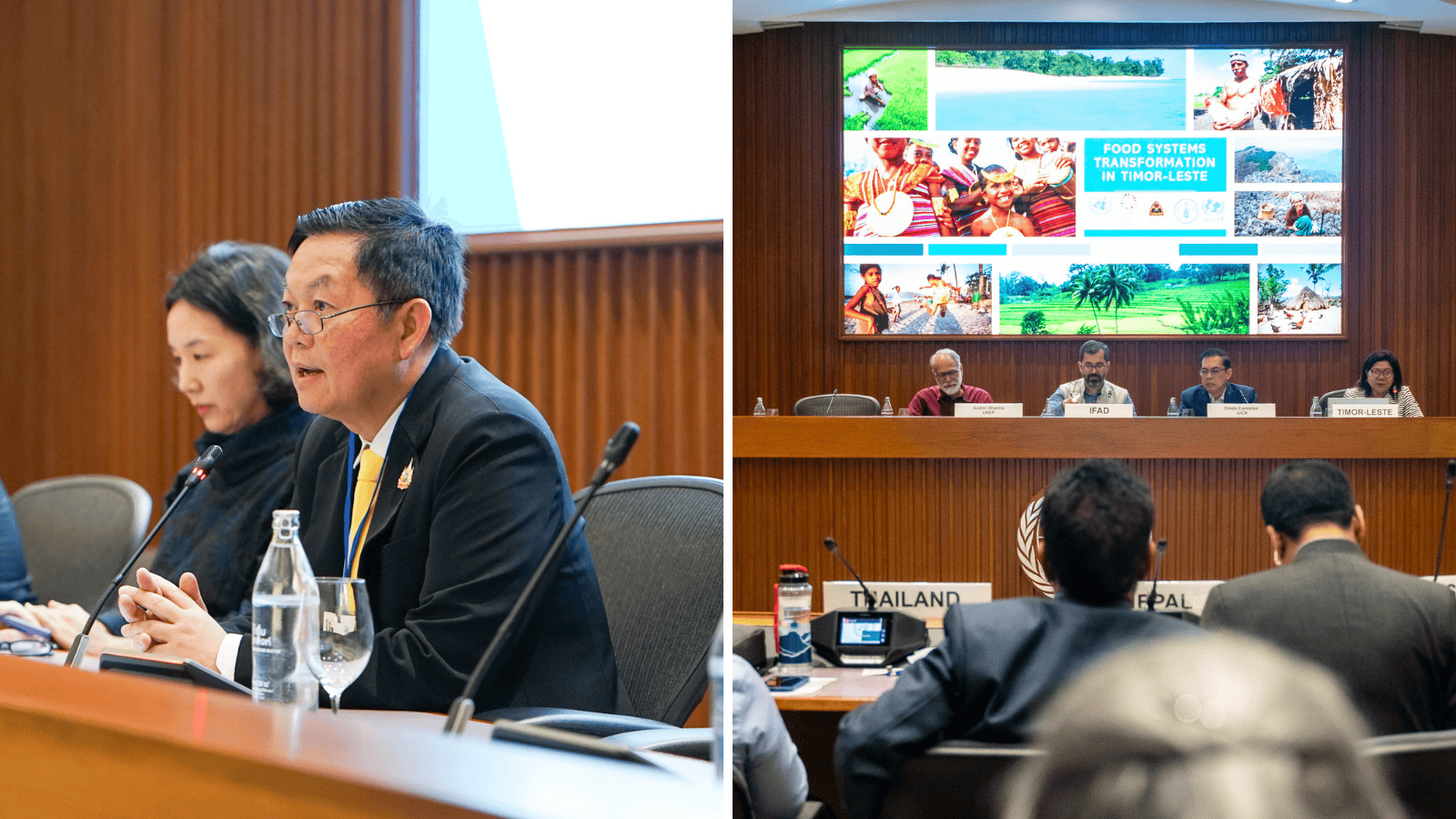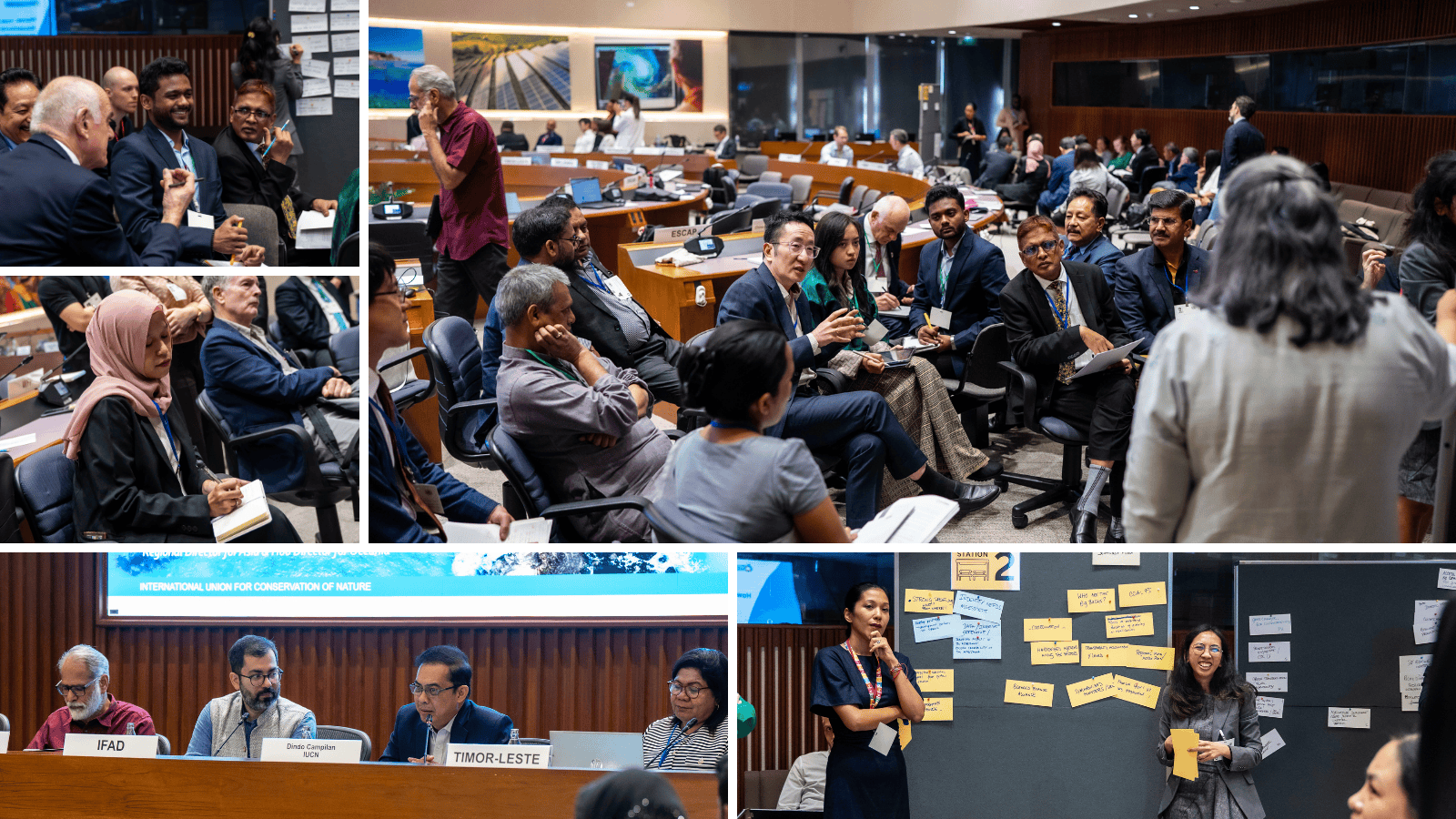SEED FUNDING JOINT PROGRAMMES
Egypt
Strengthening Sustainable and Resilient Food and Nutrition Systems in Egypt for SDG Acceleration




PROJECT TITLE | Strengthening Sustainable and Resilient Food and Nutrition Systems in Egypt for SDG Acceleration |
| Context | Egypt engaged actively in the 2021 Food Systems Summit process, convening a national dialogue and developing national pathways with recommended interventions for improving food security and nutrition by 2030. To enhance multi-sectorial coordination and spearhead the transformation process, the Government created a National Committee for Food and Nutrition Systems chaired by the Prime Minister and bringing together several ministries to coordinate joint actions. Strengthening coordination mechanisms, fostering multi-stakeholder partnerships, consolidating accountability structures, focusing on the availability of evidence, analysis, and data, are identified as key priorities to strengthen the food systems governance structure in Egypt. |
| PUNOs | WFP, FAO, UNICEF |
| Contribution to SDGs | SDG 2 Zero Hunger, SDG 3 Good Health and Well-being, 12 Responsible Consumption and Production. |
| Contribution to other SDG transitions | Climate, biodiversity, pollution |
| Duration | June 2024 – May 2025 |
| Expected financial leverage | $87,000 (PUNO co-financing) |
| Alignment with SG Call to Action | Policy integration; Food systems governance; Research, data, technology and innovation; Inclusive and participatory design; Private sector engagement |
| Outcomes | The JP contributes to strengthening policy and governance frameworks for food systems transformation and generating evidence and analysis on key dimensions of food systems to inform decision-making, supporting the work of the National Committee for Food and Nutrition Systems. The JP complements the government’s flagship program “Country Platform for the Nexus of Water, Food and Energy”, which provides a mechanism to mobilize climate finance and private investments. |
| Partners |
|
| Outputs |
|
UNFSS+4 Regional Preparatory Meeting in Asia and the Pacific

Bangkok, Thailand – 120 in-person participants, including twenty National Convenors or their representatives, policymakers, farmers' groups, youth, civil society, development partners and other food systems stakeholders from across Asia and the Pacific gathered in Bangkok from 3–5 March 2025 for the UNFSS+4 Regional Preparatory Meeting. The event was co-organized by the UN Food Systems Coordination Hub, the UN Economic and Social Commission for Asia and the Pacific (ESCAP), and the Food and Agriculture Organization of the United Nations (FAO) Regional Office for Asia and the Pacific.
The meeting provided an important platform for reflecting on regional progress, strategizing collective actions, and refining key messages in preparation for the UN Food Systems Summit +4 Stocktake (UNFSS+4) in Addis Ababa in July 2025. Participants exchanged ideas, shared knowledge, and reported on progress in transforming food systems – highlighting policies to ensure food security, multisectoral collaboration to enhance accountability, and strategies to leverage and scale up financing innovations.
A critical moment for food systems in Asia and the Pacific
Despite its position as a global food production powerhouse – particularly for rice, millets, and farmed aquatic foods – the region is home to more than 50% of the world's malnourished population or almost 350 million people. Climate change, resource depletion, and unsustainable agricultural practices continue to escalate, making policy coherence and targeted investments vital to safeguard the region’s food future.
Opening the meeting, Stefanos Fotiou, Director of the UN Food Systems Coordination Hub, emphasized the importance of coordinated support in accelerating transformation. “National Convenors are in the driver’s seat, but the ecosystem of support will help accelerate food systems transformation,” he stated, reaffirming the UN system’s commitment to supporting countries in turning commitments into action.
In a video message, UN Deputy Secretary-General Amina J. Mohammed stressed the need for ambition backed by investment. “Now is the time to scale up efforts, aligning policies and investments with the ambition needed for real impact,” she emphasized, urging countries to shift from commitments to tangible results.

Left to right: Stefanos Fotiou, Amina J. Mohammed (on screen), Mr. Jong-Jin Kim and Ms. Lin Yang.
High-level remarks and reflections from the co-organizers followed, showcasing the strides made across the region over the last three years.
“In the past three years, we have made significant progress in key elements to transform agrifood systems, and now we are moving to programming for concrete actions. This two-and-a-half-day meeting as a regional Stocktake event focuses on reflecting on the progress we have made so far, particularly how the various players in the food system can be strengthened and enabled to contribute to transformation of the system,” said Jong-Jin Kim, Assistant Director-General and FAO Regional Representative for Asia and the Pacific.
Despite positive strides, major challenges persist.
“Our challenges – climate risk, biodiversity loss, and supply chain disruptions – do not respect national borders, and neither should our solutions. By strengthening regional cooperation, sharing knowledge, and aligning efforts across countries, we can accelerate progress towards more resilient and sustainable food systems,” added Ms. Lin Yang, Deputy Executive Secretary for Programme, UNESCAP.
The meeting also provided a platform for National Convenors and stakeholders to highlight progress and outline needs to address the complex interlinkages of food systems transformation.
Dr. Taworn Thunjai, National Convenor and Deputy Permanent Secretary of the Ministry of Agriculture and Cooperatives of Thailand, underlined the urgency of environmental stewardship. “Achieving the SDGs, particularly ending hunger and poverty, will not be possible without bold and urgent action to improve the management of land, soil, and water resources,” he stated, reaffirming Thailand’s commitment to innovative solutions.

Left: Dr. Taworn Thunjai.
Aligning policies, partnerships, and investments for impact
The regional preparatory meeting focused on the three core objectives of UNFSS+4: reflecting on progress, strengthening accountability and governance, and unlocking financing for transformation.
On finance, participants discussed efforts to leverage mechanisms such as the Green Climate Fund (GCF) and Global Environment Facility (GEF). However, complex administrative procedures and eligibility criteria continue to pose barriers for many countries. National Convenors emphasized the need to adapt existing and create new financial mechanisms dedicated to food systems transformation. They also stressed the importance of small-scale, flexible financing that reaches farmers and cooperatives – actors often left out of traditional investment frameworks.
Nadina Gbossa from the International Fund for Agricultural Development (IFAD) and Christopher Ian Brett from the World Bank highlighted the importance of innovative financing, private sector engagement, and using financial data and tools to support national efforts.
“At the moment, numbers are showing that 32% of finance is going into short-term food security and short-term fixes, which should not be called investments. This needs to be addressed,” said Chris Brett, underscoring the importance of scaling up long-term finance for agriculture and food systems.
Strengthening accountability and governance was another key theme. Recognizing that food systems transformation requires a whole-of-society approach, participants called for strong accountability mechanisms, improved regulatory environments, and support for smallholders – especially through better data systems and monitoring frameworks to ensure transparency, shared responsibility, and long-term policy ownership.
Harnessing science, innovation, and Indigenous knowledge
The meeting explored how science and Indigenous knowledge can contribute to resilient food systems. With Asia and the Pacific home to 70% of the world’s Indigenous Peoples, participants emphasized the importance of integrating traditional ecological practices with modern innovations.
Yet, many countries' investments in research in the region are insufficient. A key challenge in food systems research is the gap between research findings and their implementation. Many studies remain within academia and are not translated into policy or practice. To bridge this gap, a participatory approach is needed—bringing together researchers, farmers, and extension workers to pilot findings and communicate them in understandable language to decision-makers. Young people also have an important role in effective science communication and should be engaged.
Participants called for increased research funding and closer collaboration between scientists, policymakers, and communities to ensure that evidence translates into actionable solutions.

Stronger regional partnership is essential for lasting change
A key outcome of the meeting was a call for stronger regional coordination. While many countries have developed national food systems pathways, the absence of a regional governance mechanism limits cross-border collaboration.
Countries proposed the creation of a formal network of national and subregional Convenors to exchange knowledge, co-design solutions, and jointly mobilize resources for greater impact.
Looking ahead to UNFSS+4
With UNFSS+4 approaching, this regional meeting was an important opportunity for countries to take stock of their progress, share experiences, and align on regional priorities. The key messages from Asia and the Pacific will inform global deliberations in Addis Ababa, ensuring that the region’s voice and vision are reflected in the Stocktake’s programming and outcomes.
Related links:
- UNFSS+4 Regional Preparatory Meetings
- Event page for UNFSS+4 Regional Preparatory Meeting in Asia and the Pacific
- Links to the presentations
- Photographs from the event
